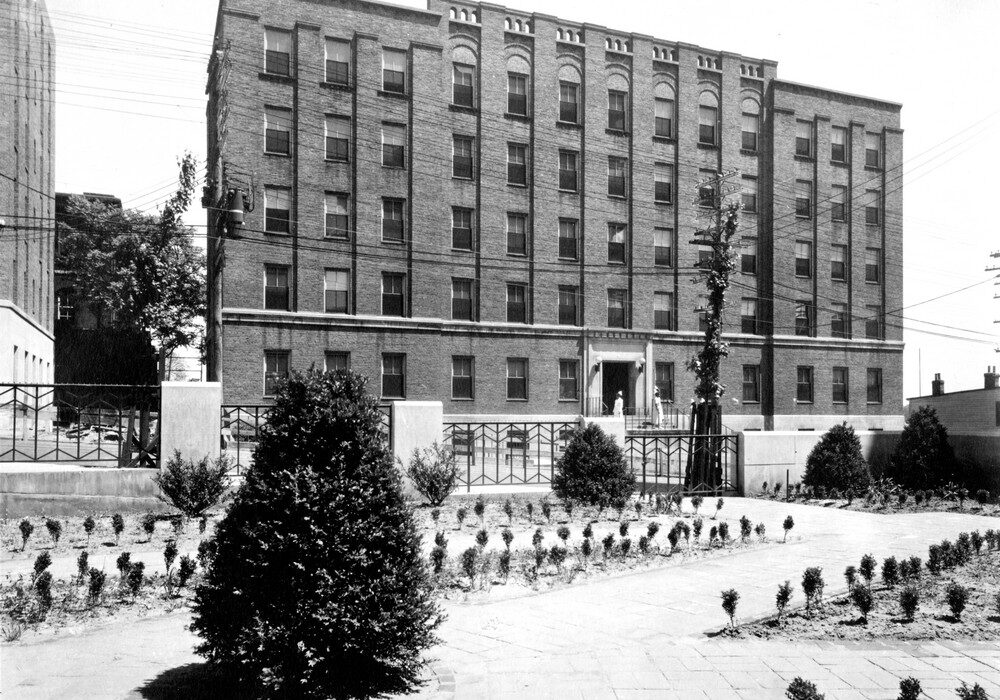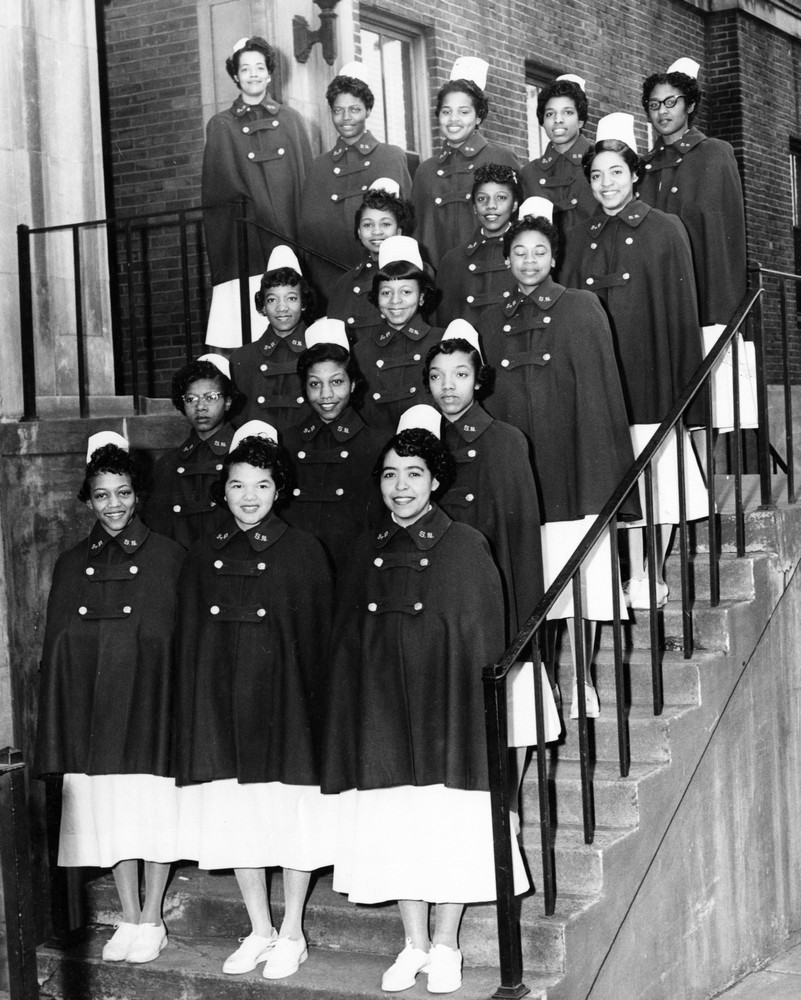Assessing Structural Racism by Understanding St. Philip Hospital and School of Nursing
Between 1920 and 1962, St. Philip Hospital served as MCV’s segregated hospital for Richmond’s Black community. In 1920, MCV also established the St. Philip School of Nursing to provide nursing training to Black women, who then provided nursing services to Black patients at the St. Philip Hospital. The MCV School of Nursing admitted its first Black student in 1957, and the St. Philip School graduated its final class of Black nursing students in 1962. By 1965 all MCV hospitals had begun to admit non-emergency Black patients.
This learning module provides users with a collection of videos and readings designed to deepen their awareness of the history and legacy of the St. Philip Hospital and School of Nursing.

St. Philip School of Nursing building
Learning objectives
- Describe the relevance and importance of the history of St. Philip Hospital and School of Nursing for healthcare providers today.
- Explain how structural racism has continued to harm people of color living in the City of Richmond.
- Identify ways in which VCU Health team members will actively strive to minimize the impact of structural racism in patient care (required only for those pursuing CME credits).
- Recognize the variables contributing to structural racism in their workplace.
NOTE: Users who are pursuing the Unlocking Health Equity badge, credit through the VCU Health System DEI learning requirement, or those who would like to claim continuing education credit must complete and submit the Reflection Activity at the bottom of this page. Please visit VCU Health Continuing Education for more information.
Learning materials
The materials below can be reviewed in less than an hour, and users are encouraged to review the materials in the order they are presented.
The Legacy of the St. Philip School of Nursing
As part of a video recorded during Reunion Weekend in 2012 to commemorate the 50th anniversary of the St. Philip School of Nursing's closing, alumnae shared recollections about their education at the school and their careers as nurses during the 20th century. You can hear these recollections by watching The Legacy of St. Philip School of Nursing below.
Resources
We ask that you spend the hour reading and viewing the resources above and viewing as many of the linked resources below as possible before completing the reflection activity. Reflections will be evaluated, and individuals may be asked to resubmit if answers are incomplete or do not meet the length requirement.
Remembering St. Philip: A panel discussion. (July 2019). 39-minute YouTube video. Richmond, Virginia: Virginia Commonwealth University.
Lacy, M. W., and Pinala W.M. (1978). A historical bulletin of the Saint Philip School of Nursing and alumnae. [Richmond, Va.]: Saint Philip Alumnae Association.
In the Shadow of Killer King (2021). 19-minute Code Switch podcast that describes how discrimination in health care funding policy since the 1970s has resulted in lower quality health outcomes for Black Americans, including the differential impact of Covid-19 on communities of color.
Race and Racism in Health Care | Harvey Cushing/John Hay Whitney Medical Library Webpage that brings together resources for educating and raising awareness on this important topic as it relates to health care, including useful tools and search tips for personal exploration.
Time to reflect on what you have learned
Reflection activity directions
Users who are pursuing VCU’s History and Health; Racial Equity badge, credit through VCU Health System DEI learning requirement, or those who would like to claim continuing education credit must complete and submit the Reflection Activity. The form asks the user to submit basic biographical information (e.g., name, department) and to answer one of the following 3 prompts. Your response must be a minimum of 250 words.
PROMPT OPTION 1: What information from this learning module was most surprising to you? Why do you think that specific information stands out in your mind? If you were to share that information with someone in your workplace, who would it be and why? How would sharing that information be important in promoting antiracism?
-OR -
PROMPT OPTION 2: The St. Philip nurses received a very high standard of training, yet they were not permitted to treat white patients or perform certain procedures. They also often worked in overcrowded and under-resourced conditions compared to conditions at the nearby MCV hospital for White patients. Have you ever worked, seen, or been a patient in a situation that shared any of these characteristics? If so, how did that situation make you feel and how did you cope? If you have not had this experience, how might a care provider or patient in this situation feel or respond to this situation?
-OR-
PROMPT OPTION 3: Many people are unaware of the St. Philip Hospital and School of Nursing story in the VCU/MCV/VCUHS history. Why is it important for VCU/VCUHS employees to know about St. Philip? How might a broader understanding of this historic change the way we serve our patients?


